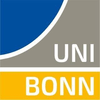The full-time, four-semester program offers an unparalleled mix of research, lectures and practical experience and prepares students for communications and media industry careers. The interdisciplinary program curriculum covers a multitude of topics, such as media and development, journalism, communication science and media management.
Since its launch in 2009, more than 290 students from 74 countries have successfully completed the master’s program. As a joint project of the University of Bonn, the Bonn-Rhein-Sieg University of Applied Sciences and DW Akademie, the program offers an excellent learning environment for up to 30 students per year.
Rheinische Friedrich-Wilhelms-Universität Bonn Information

 Founded in 1818, Rheinische Friedrich-Wilhelms-Universität Bonn (University of Bonn) is a non-profit public higher education institution located in the urban setting of the small city of Bonn (population range of 250,000-499,999 inhabitants), North Rhine-Westphalia. Officially accredited and/or recognized by the Ministerium für Kultur und Wissenschaft des Landes Nordrhein-Westfalen (Ministry of Culture and Science of North Rhine-Westphalia), Rheinische Friedrich-Wilhelms-Universität Bonn (UNIBONN) is a very large (uniRank enrollment range: 35,000-39,999 students) coeducational higher education institution. Rheinische Friedrich-Wilhelms-Universität Bonn (UNIBONN) offers courses and programs leading to officially recognized higher education degrees in several areas of study. See the uniRank degree levels and areas of study matrix below for further details. This 201 years old higher-education institution has a selective admission policy based on entrance examinations and students' past academic record and grades. International students are welcome to apply for enrollment.
Founded in 1818, Rheinische Friedrich-Wilhelms-Universität Bonn (University of Bonn) is a non-profit public higher education institution located in the urban setting of the small city of Bonn (population range of 250,000-499,999 inhabitants), North Rhine-Westphalia. Officially accredited and/or recognized by the Ministerium für Kultur und Wissenschaft des Landes Nordrhein-Westfalen (Ministry of Culture and Science of North Rhine-Westphalia), Rheinische Friedrich-Wilhelms-Universität Bonn (UNIBONN) is a very large (uniRank enrollment range: 35,000-39,999 students) coeducational higher education institution. Rheinische Friedrich-Wilhelms-Universität Bonn (UNIBONN) offers courses and programs leading to officially recognized higher education degrees in several areas of study. See the uniRank degree levels and areas of study matrix below for further details. This 201 years old higher-education institution has a selective admission policy based on entrance examinations and students' past academic record and grades. International students are welcome to apply for enrollment.
Offered Benefits
The program is particularly aimed at:
- Media workers from radio, TV, online and print
- Young journalists, especially those working with electronic media
- Journalists and managers from community radio stations
- Communications experts
- NGO employees
- Government ministry employees
- Staff working in the area of development cooperation
- Representatives of national broadcasters’ regional working groups
- Media association representatives


 Founded in 1818, Rheinische Friedrich-Wilhelms-Universität Bonn (University of Bonn) is a non-profit public higher education institution located in the urban setting of the small city of Bonn (population range of 250,000-499,999 inhabitants), North Rhine-Westphalia. Officially accredited and/or recognized by the Ministerium für Kultur und Wissenschaft des Landes Nordrhein-Westfalen (Ministry of Culture and Science of North Rhine-Westphalia), Rheinische Friedrich-Wilhelms-Universität Bonn (UNIBONN) is a very large (uniRank enrollment range: 35,000-39,999 students) coeducational higher education institution. Rheinische Friedrich-Wilhelms-Universität Bonn (UNIBONN) offers courses and programs leading to officially recognized higher education degrees in several areas of study. See the uniRank degree levels and areas of study matrix below for further details. This 201 years old higher-education institution has a selective admission policy based on entrance examinations and students' past academic record and grades. International students are welcome to apply for enrollment.
Founded in 1818, Rheinische Friedrich-Wilhelms-Universität Bonn (University of Bonn) is a non-profit public higher education institution located in the urban setting of the small city of Bonn (population range of 250,000-499,999 inhabitants), North Rhine-Westphalia. Officially accredited and/or recognized by the Ministerium für Kultur und Wissenschaft des Landes Nordrhein-Westfalen (Ministry of Culture and Science of North Rhine-Westphalia), Rheinische Friedrich-Wilhelms-Universität Bonn (UNIBONN) is a very large (uniRank enrollment range: 35,000-39,999 students) coeducational higher education institution. Rheinische Friedrich-Wilhelms-Universität Bonn (UNIBONN) offers courses and programs leading to officially recognized higher education degrees in several areas of study. See the uniRank degree levels and areas of study matrix below for further details. This 201 years old higher-education institution has a selective admission policy based on entrance examinations and students' past academic record and grades. International students are welcome to apply for enrollment.